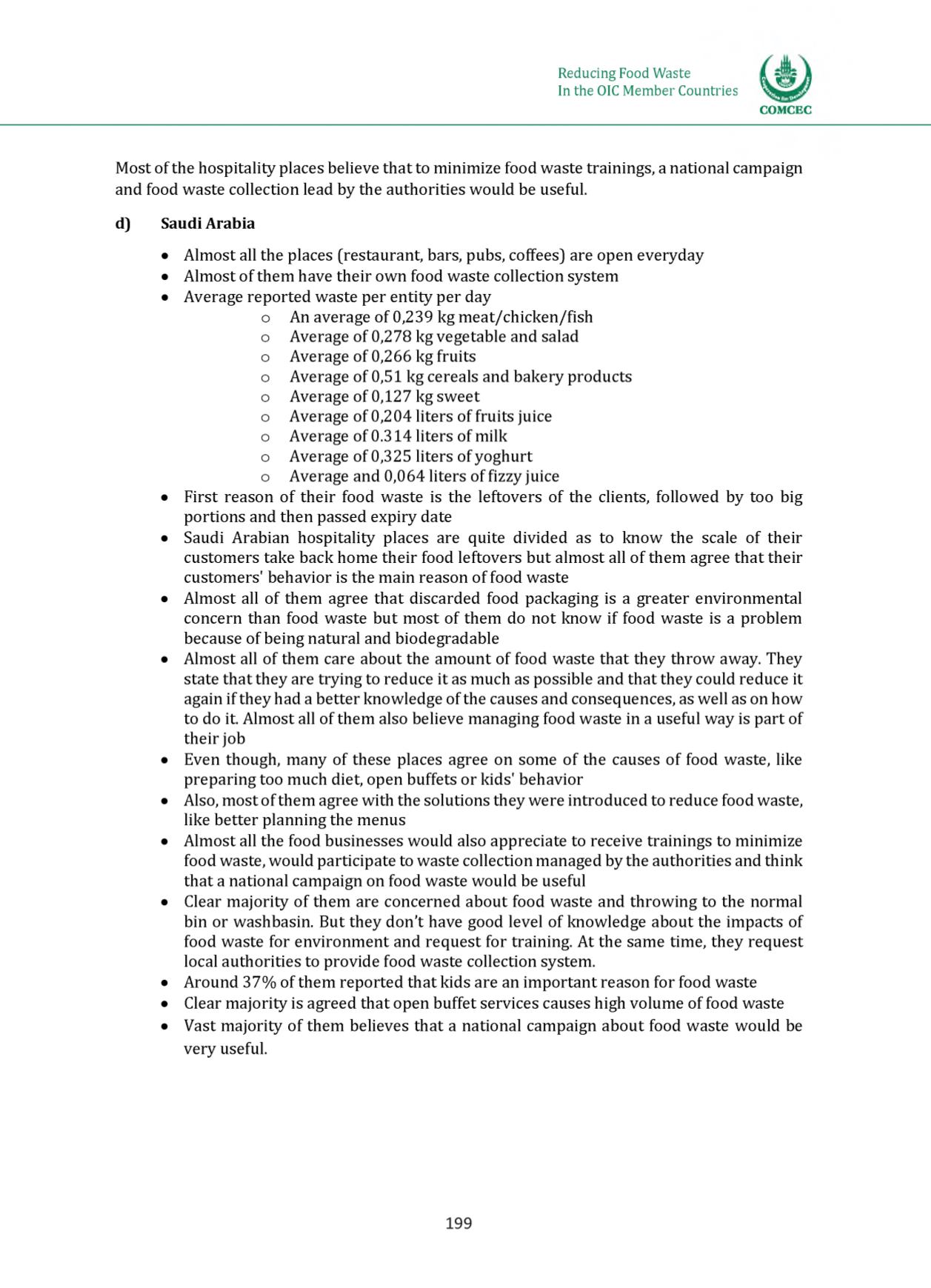

Reducing Food Waste
In the OIC Member Countries
COMCEC
Most of the hospitality places believe tha t to m in im ize food waste trainings, a na tional campaign
and food waste collection lead by the authorities w ou ld be useful.
d)
Saudi Arabia
• A lm ost all the places (restaurant, bars, pubs, coffees) are open everyday
• A lm ost o f them have their own food waste collection system
• Average reported waste per entity per day
o An average of 0,239 kg m eat/ch icken/fish
o Average of 0,278 kg vegetable and salad
o Average of 0,266 kg fruits
o Average of 0,51 kg cereals and bakery products
o Average of 0,127 kg sweet
o Average of 0,204 liters of fruits juice
o Average of 0.314 liters
of m ilk
o Average of 0,325 liters
of yoghurt
o Average and 0,064 liters of fizzy juice
• First reason o f their food waste is the leftovers of the clients, followed by too big
portions and then passed expiry date
• Saudi Arabian hospitality places are quite divided as to know the scale of their
customers take back home their food leftovers b u t alm ost all o f them agree tha t their
customers' behavior is the m a in reason o f food waste
• A lm ost all of them agree th a t discarded food packaging is a greater environmental
concern than food waste b u t m ost of them do n o t know if food waste is a problem
because of being natu ral and biodegradable
• A lm ost all of them care abou t the am o u n t of food waste tha t they th row away. They
state th a t they are trying to reduce it as much as possible and tha t they could reduce it
again if they had a better know ledge of the causes and consequences, as well as on how
to do it. A lmost all of them also believe managing food waste in a useful way is pa rt of
their job
• Even though, m any of these places agree on some o f the causes o f food waste, like
p reparing too m uch diet, open buffets or kids' behavior
• Also, m ost o f them agree w ith the solutions they were in troduced to reduce food waste,
like better p lann ing the menus
• A lm ost all the food businesses w ou ld also appreciate to receive trainings to m inim ize
food waste, w ou ld participate to waste collection managed by the authorities and th ink
tha t a national campaign on food waste w ou ld be useful
• Clear m ajority o f them are concerned abou t food waste and throw ing to the no rmal
b in or washbasin. But they d o n ’t have good level of know ledge abou t the impacts of
food waste for env ironm ent and request for training. A t the same time, they request
local authorities to provide food waste collection system.
• A round 37% of them reported tha t kids are an im po rtan t reason for food waste
• Clear m ajority is agreed tha t open buffet services causes high volum e of food waste
• Vast majority o f them believes tha t a national campaign abou t food waste w ou ld be
very useful.
199
















